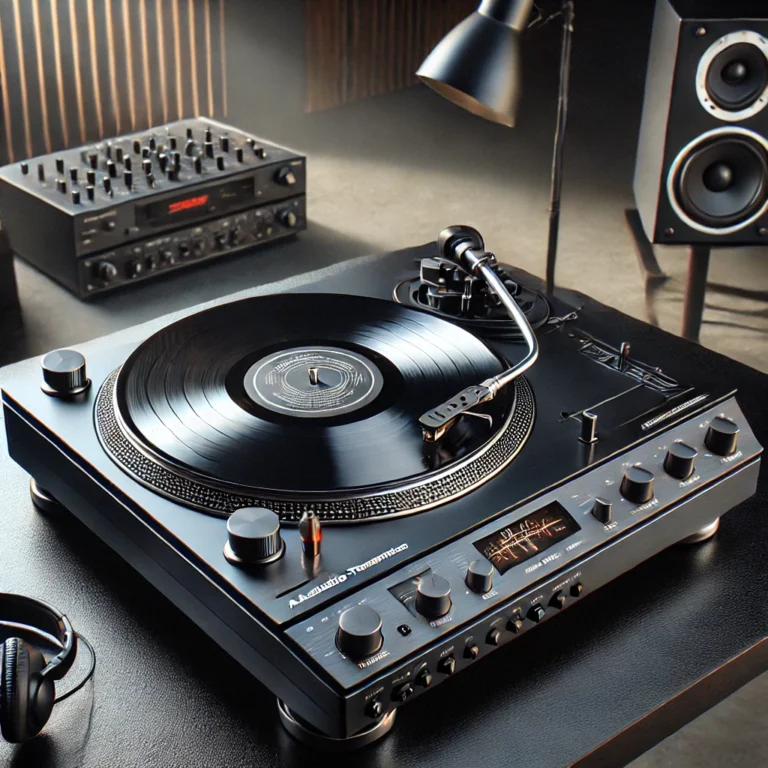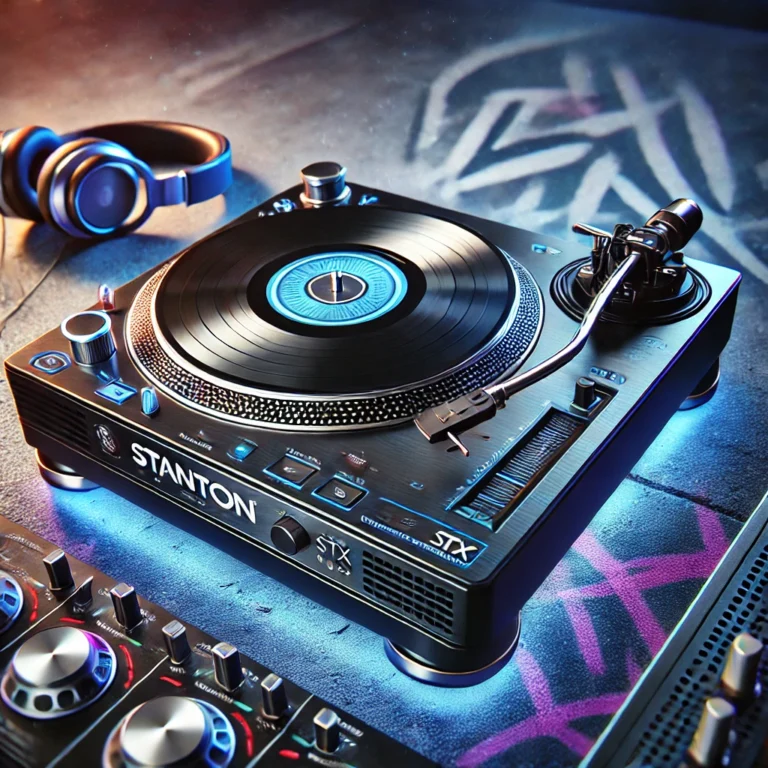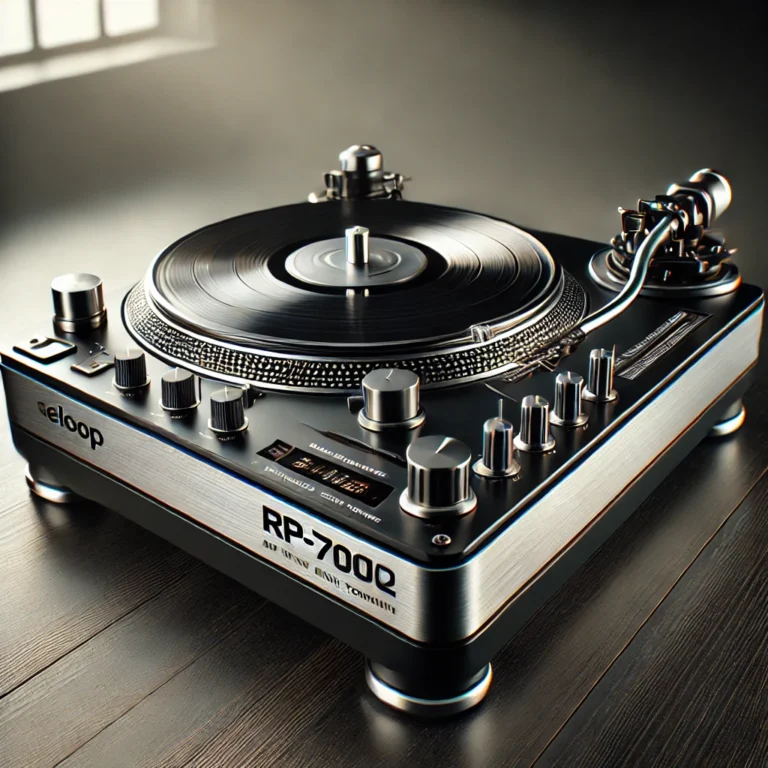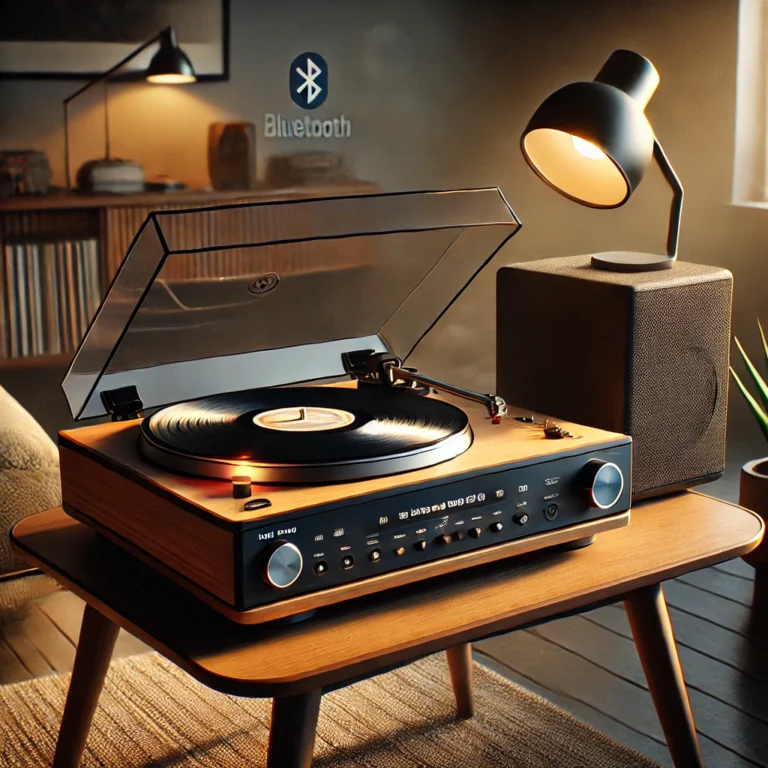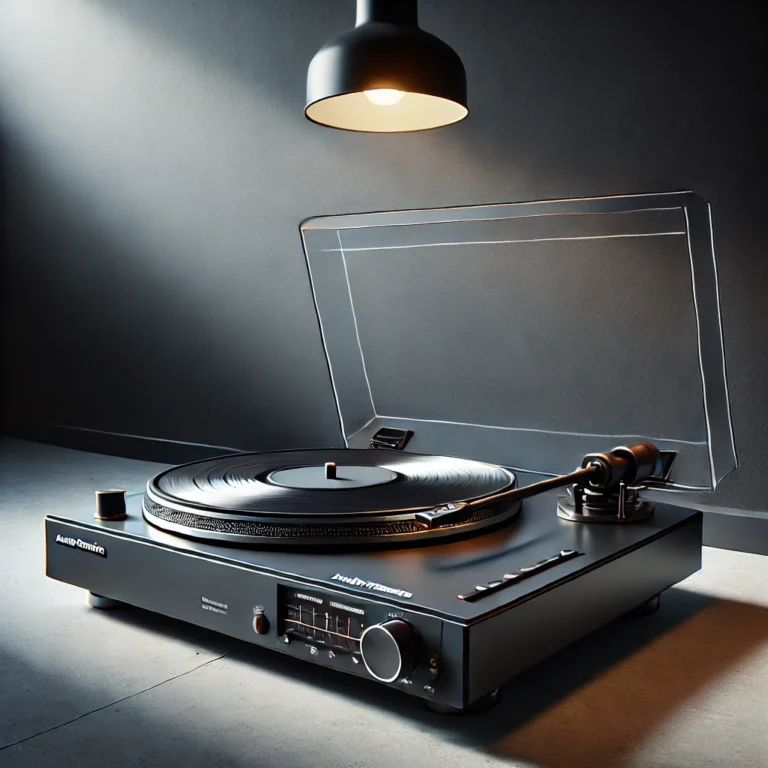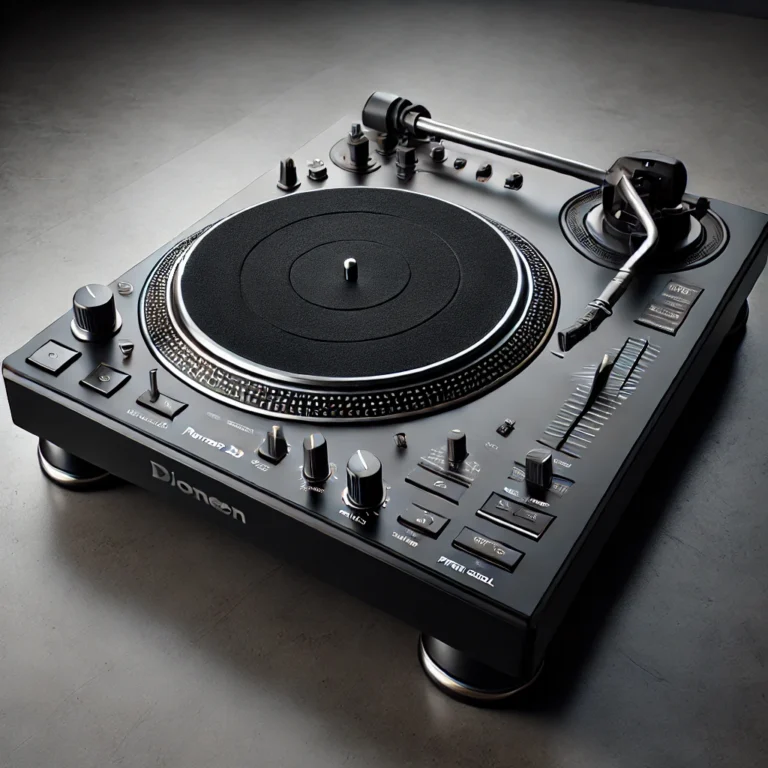Direct Drive vs Belt Drive DJ Turntables: Which One is Right for You?
If you’re a DJ or an aspiring one, choosing the right turntable is one of the most important decisions you’ll make. With various models on the market, the key feature that separates one turntable from another is its drive system. Most DJ turntables fall into two categories: direct drive and belt drive. Each has its strengths, weaknesses, and suitability depending on your needs, style, and skill level.
In this blog, we will explore the key differences between direct drive and belt drive DJ turntables, helping you understand which type is the best fit for your specific requirements. Let’s also look at some specific models that offer the best performance in both categories.
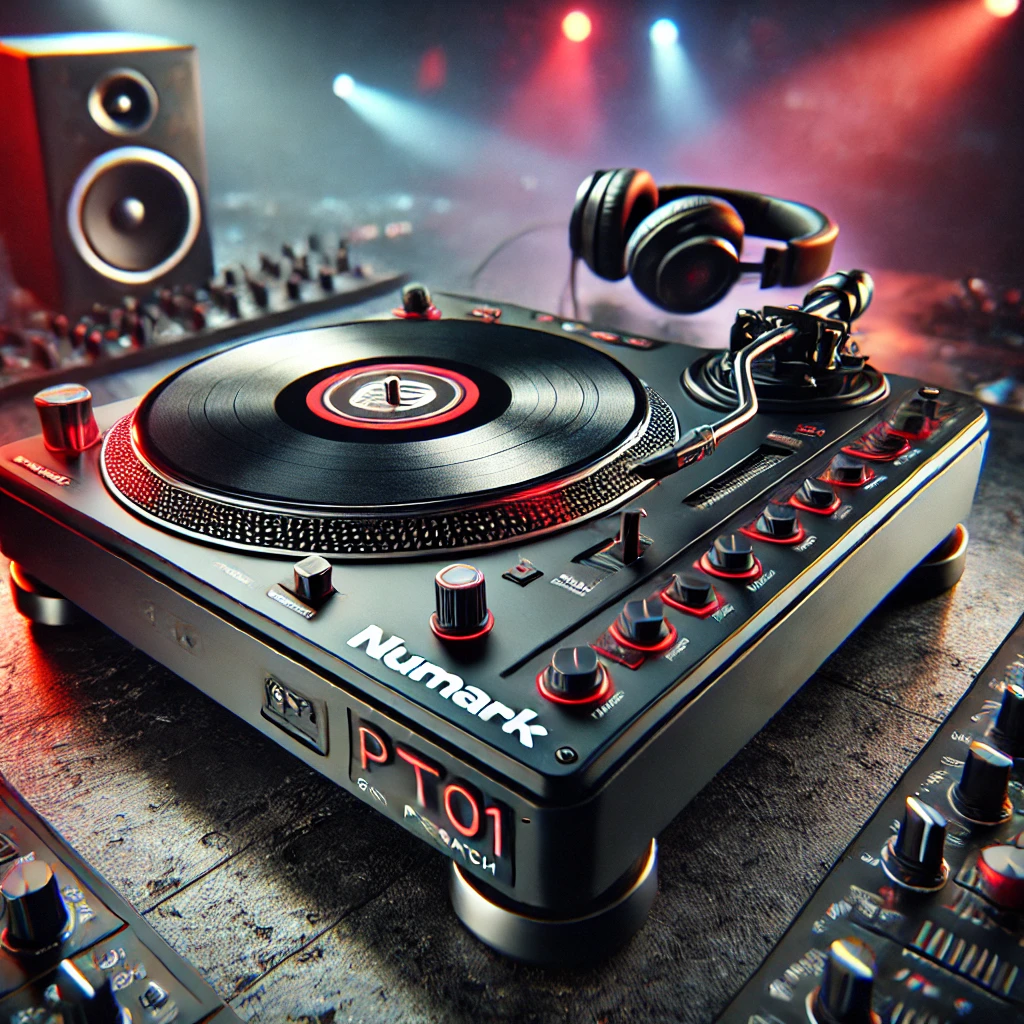
1. What is a Direct Drive Turntable?
A direct drive turntable is designed with the motor positioned directly underneath the platter, which means the platter is directly powered by the motor. This design results in quick start-up times, strong torque, and greater control—features that are especially important for DJs.
Key Features:
High torque: Fast start-up and consistent speed control.
Durability: Direct connections between motor and platter often result in a longer lifespan.
Speed accuracy: Direct drive models generally have less variation in RPM.
Ideal for scratching and mixing: Due to its immediate responsiveness and torque control, it’s perfect for professional DJs.
Best for:
Direct drive turntables are the go-to choice for professional DJs who value reliability, torque, and precision in mixing, scratching, and beat-matching.
Recommended Models:
1.1. Pioneer DJ PLX-1000
If you’re a professional DJ or serious hobbyist, the Pioneer DJ PLX-1000 is one of the top contenders. It features a high-torque direct drive system, ensuring minimal delay and exceptional accuracy in speed control. Built with a solid, heavy chassis for reduced vibration, it delivers clear and accurate sound, even in loud environments.
Pros: High-torque motor, minimal vibrations, sleek design.
Cons: Premium price tag.
1.2. Audio-Technica AT-LP120XUSB
For those looking for a high-quality yet more affordable option, the Audio-Technica AT-LP120XUSB offers a strong direct drive motor with USB capabilities, allowing DJs to easily digitize their vinyl collections. It’s equipped with adjustable pitch control and a highly durable design, making it a great all-around option for entry-level to mid-level DJs.
Pros: Affordable, great sound, USB connectivity.
Cons: Slightly less torque than high-end models.
2. What is a Belt Drive Turntable?
A belt drive turntable works differently, using an elastic belt to spin the platter. The motor is located off to the side, and the belt transfers power to the platter. This design is favored for casual listening, but DJs often find it less ideal for performance-oriented tasks due to its lower torque and slower start-up time.
Key Features:
Lower noise: Because the motor is separated from the platter, it often produces less noise, resulting in better sound quality.
Slower start-up times: The belt system takes longer to reach full speed.
Lower torque: This can make scratching and beat matching more difficult.
Vibration absorption: Belts absorb more vibration, reducing mechanical noise, which makes it more suitable for home audio enthusiasts.
Best for:
Belt drive turntables are typically more suited for audiophiles and casual listeners who prioritize sound quality over DJ performance. They are not typically recommended for professional DJ use.
Recommended Models:
2.1. Pro-Ject Debut Carbon EVO
A top-tier belt drive turntable that audiophiles love is the Pro-Ject Debut Carbon EVO. With a carbon fiber tonearm and a heavy platter, this turntable delivers high-quality sound. It’s a popular choice for home use, where pristine audio is the primary focus rather than DJ performance.
Pros: Superior sound quality, sleek aesthetic, vibration control.
Cons: Not suitable for scratching or DJing.
2.2. Rega Planar 1
The Rega Planar 1 is another excellent belt drive option, offering smooth operation and excellent sound fidelity. While it lacks the torque and speed control needed for DJing, it excels at producing warm, detailed sound for vinyl enthusiasts.
Pros: Great sound for the price, minimalist design.
Cons: Not suited for DJ use or scratching.
3. Performance Comparison: Direct Drive vs Belt Drive
Now that we’ve looked at individual models, let’s dive into a direct comparison between direct drive and belt drive turntables, particularly focusing on the aspects that matter most to DJs.
Torque and Start-Up Time
Direct Drive: Due to its motor-to-platter connection, direct drive turntables boast immediate start-up times and high torque, which allows DJs to scratch, backspin, and manipulate the record easily.
Belt Drive: Belt drive models, on the other hand, suffer from slower start-up times and lower torque. This makes them less responsive for tasks like beat juggling and scratching, which require quick adjustments.
Sound Quality
Belt Drive: Belt drive turntables have better vibration isolation, which leads to less mechanical noise and, as a result, better sound fidelity. This is why many audiophiles prefer belt drive turntables for casual listening.
Direct Drive: While the direct connection between the motor and the platter can sometimes introduce more noise, high-end direct drive models are designed to minimize this issue through enhanced build quality and vibration-dampening materials.
Durability and Maintenance
Direct Drive: Direct drive systems are generally more durable. Since they don’t rely on belts, they experience less wear and tear over time.
Belt Drive: Belt drive models require more maintenance, as the belts can stretch, wear out, or break over time. This makes them less durable in the long run, particularly in heavy DJ use.
Cost
Belt Drive: Typically, belt drive turntables are more affordable, making them a popular choice for beginners and casual listeners who prioritize budget over performance.
Direct Drive: Direct drive models, especially high-torque versions suitable for DJing, tend to be more expensive, but the investment is well worth it for anyone serious about DJing.
4. Which Should You Choose?
Choose a Direct Drive Turntable if:
You’re a DJ or aspiring DJ who needs immediate torque for scratching, mixing, or beat-matching.
You want a durable, professional-grade turntable with fast start-up times and precise speed control.
Models like the Pioneer DJ PLX-1000 or Audio-Technica AT-LP120XUSB will serve you well in live performances and demanding environments.
Choose a Belt Drive Turntable if:
You’re more interested in listening to music at home and value the clarity and warmth of sound over DJ-specific performance features.
You don’t need fast start-up times, scratching capabilities, or high torque.
Models like the Pro-Ject Debut Carbon EVO and Rega Planar 1 will satisfy your need for superb audio fidelity at a reasonable price.
5. Conclusion
When deciding between a direct drive and belt drive turntable, your choice should be based on your specific needs. For DJs, the power, precision, and reliability of direct drive turntables are unbeatable, making them the best choice for scratching, mixing, and live performances. On the other hand, if you’re more focused on pure sound quality for home listening, belt drive turntables offer superior sound fidelity and lower noise, though they fall short in the DJ department.
Both types have their place, but knowing your needs will guide you to the best model. If you’re ready to up your DJ game, check out the Pioneer DJ PLX-1000 or Audio-Technica AT-LP120XUSB for a top-tier direct drive experience. Alternatively, for music lovers, the Pro-Ject Debut Carbon EVO is the audiophile’s dream come true.
Ready to make your choice? Explore these models and invest in the turntable that best suits your style!
